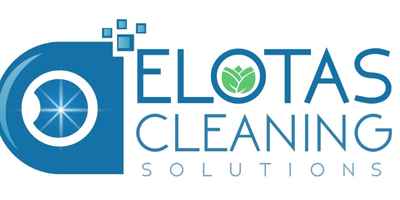Are you ready to unlock the secret to maintaining a clean and efficient data center? Just like a well-tuned engine, your data center equipment requires regular cleaning to ensure optimal performance.
In this comprehensive guide, we will delve into the key principles and strategies for effective data center equipment cleaning. From understanding the importance of cleanliness to overcoming common challenges, we will equip you with the knowledge and tools needed to keep your data center running smoothly.
Discover the best practices for selecting the right cleaning products and developing a cleaning schedule that fits your unique needs. With this newfound knowledge, you’ll have the freedom to maintain a clean and efficient data center that operates at its full potential.
Table of Contents
Key Takeaways
- Regular cleaning of data center equipment is important to ensure optimal performance and prevent potential downtime.
- Dust, dirt, and debris can lead to overheating, poor airflow, decreased efficiency, and system failures.
- It is crucial to use specially designed cleaning tools and solutions and pay special attention to vents and fans during the cleaning process.
- When choosing cleaning products for data centers, it is best to look for non-abrasive, anti-static, non-conductive, environmentally friendly, and fast-drying options.
Importance of Data Center Equipment Cleaning
Maintaining the cleanliness of your data center’s equipment is crucial for ensuring optimal performance and preventing potential downtime. Dust, dirt, and debris can accumulate on your equipment, leading to overheating and poor airflow. This can result in decreased efficiency and even system failures.
Regular cleaning of your data center’s equipment is necessary to remove these contaminants and maintain a clean and healthy environment for your equipment to operate in. It’s recommended to use specially designed cleaning tools and solutions that are safe for electronic components. Pay close attention to areas such as fans, vents, and filters, as these are common areas where dust and debris tend to accumulate.
Common Challenges in Data Center Cleaning
To effectively clean your data center equipment, you must overcome several common challenges. These challenges can arise due to the sensitive nature of data center environments and the intricate design of the equipment. Here are five common challenges that you may encounter:
- Dust and debris accumulation: Dust particles and debris can accumulate on equipment surfaces, leading to reduced performance and potential overheating.
- Electrostatic discharge (ESD) risks: Cleaning methods must minimize the risk of ESD, which can damage sensitive electronic components.
- Restricted access: The tight spacing between equipment and limited access to certain areas can make cleaning difficult.
- Delicate components: Data center equipment often contains delicate components that require special care during cleaning to prevent damage.
- Time constraints: Cleaning must be performed quickly and efficiently to minimize downtime and disruption to operations.
Overcoming these challenges requires careful planning, appropriate cleaning techniques, and well-trained personnel to ensure the cleanliness and optimal functioning of your data center equipment.
Best Practices for Cleaning Data Center Equipment
For effective cleaning of your data center equipment, follow these best practices.
- Start by ensuring that the equipment is powered off and disconnected from any power source.
- Use a microfiber cloth or an anti-static brush to gently remove dust and debris from the surfaces.
- Avoid using any liquid cleaners directly on the equipment, as they can damage sensitive components.
- Instead, use a mild cleaning solution and a damp cloth to wipe down the surfaces.
- Pay special attention to the vents and fans, as they tend to accumulate the most dust.
- Use compressed air or a vacuum cleaner with a brush attachment to remove any stubborn debris from these areas.
- Finally, regularly schedule professional cleaning and maintenance services to keep your data center equipment in optimal condition.
Following these best practices will help ensure the longevity and performance of your equipment.
Choosing the Right Cleaning Products for Data Centers
When selecting cleaning products for your data center, it’s important to consider their compatibility with sensitive equipment and their effectiveness in removing dust and debris. Here are five factors to keep in mind when choosing the right cleaning products for your data center:
- Non-abrasive: Look for cleaning products that are gentle and non-abrasive to avoid damaging sensitive components.
- Anti-static: Opt for anti-static cleaning products to prevent static buildup and reduce the risk of electrical discharge.
- Non-conductive: Ensure that the cleaning products are non-conductive to minimize the risk of electrical damage.
- Environmentally friendly: Choose cleaning products that are environmentally friendly to promote sustainability and reduce the impact on the environment.
- Fast-drying: Select cleaning products that dry quickly to minimize downtime and ensure that the equipment is back in operation as soon as possible.
Developing a Data Center Equipment Cleaning Schedule
Now that you’ve chosen the right cleaning products for your data center equipment, it’s crucial to establish a regular cleaning schedule to ensure its optimal performance.
Developing a cleaning schedule will help you maintain a clean and efficient environment for your data center. Start by assessing the specific needs of your equipment and the environment it operates in. Consider factors such as the amount of dust or debris present, the level of activity in the data center, and any potential risks that could impact the equipment.
Based on these factors, determine the frequency of cleaning required for each piece of equipment. It’s important to be consistent and adhere to the schedule to prevent dust buildup and potential damage to your equipment.
Frequently Asked Questions
Are There Any Potential Risks or Dangers Associated With Cleaning Data Center Equipment?
Are there any potential risks or dangers associated with cleaning data center equipment? Yes, there are. It’s important to be aware of potential electrical hazards, damage to sensitive components, and the use of improper cleaning agents.
Can Data Center Equipment Cleaning Be Performed by Non-Specialized Personnel?
Yes, non-specialized personnel can perform data center equipment cleaning. However, it is crucial to receive proper training and guidance to ensure effective cleaning techniques and minimize the risk of damage or disruption to the equipment.
Is It Necessary to Shut Down the Data Center During Equipment Cleaning?
You don’t need to shut down the data center during equipment cleaning. It’s possible to perform cleaning tasks without disrupting operations, ensuring continuous functionality and minimizing downtime for your business.
How Often Should Data Center Equipment Be Cleaned?
To keep your data center equipment running smoothly, it’s important to clean it regularly. The frequency of cleaning depends on various factors like the environment and usage. A thorough cleaning every 6-12 months is generally recommended.
What Are the Consequences of Not Regularly Cleaning Data Center Equipment?
Not regularly cleaning your data center equipment can lead to a buildup of dust and debris, which can affect the performance and reliability of your equipment. Regular cleaning is essential for optimal functioning.
Conclusion
In conclusion, effective data center equipment cleaning is crucial for maintaining optimal performance and preventing potential risks.
By understanding the importance of cleaning, being aware of common challenges, implementing best practices, and selecting the right cleaning products, data center managers can ensure the longevity and reliability of their equipment.
Furthermore, developing a regular cleaning schedule will help to minimize downtime and mitigate the accumulation of dust and debris.
With these practices in place, data centers can operate efficiently and securely.

